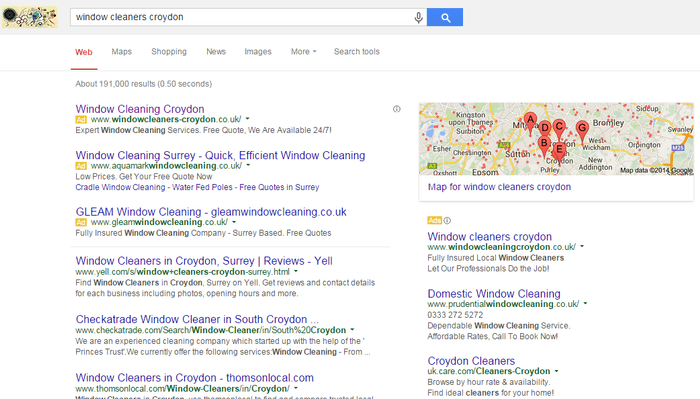Everyone has their perceptions and opinions when it comes to PPC advertising, these opinions are normally shaped from experience and word of mouth. In this article I will address three of the most common myths and hopefully give you the confidence to get started with Pay per Click marketing.
1. Anyone can manage PPC accounts, it’s easy!
PPC account set up and campaign management is not as simple as it looks, therefore it can be really beneficial to use professional PPC managers. Some benefits of using a PPC management company are:
Expertise – This is invaluable, particularly when first setting up your PPC campaigns, because you can spend a lot of money generating irrelevant clicks very easily. Experienced PPC managers will know that getting the foundations of a great PPC account such as structure, match types, and negative keywords in place at first is best practice. This will ensure that the performance of your campaigns will be better when initially launched and that there is a great basis to optimise and grow the PPC account.
Time – It takes time not only to set up PPC accounts but to manage PPC on an ongoing basis. If you are going to manage your own accounts you must set aside time to review and optimise the accounts regularly so they are continually improving and meeting your goals.
Optimisation – PPC optimisation is time consuming, but very necessary to get the best out of your accounts. Optimisation activities could include ad copy updates, ad copy testing, updating ad extensions, landing page testing, keyword expansion, negative keyword implementation, mobile optimisation, bid optimisation, etc. The list goes on!
2. Small businesses can’t compete with national companies and big brands on the search results page
Yes, they can! As seen by this example search for Window Cleaners in Croydon. You can see that on this Google search results page small business ads appear above some of the ads for national companies.

Google doesn’t use an auction only model to decide the order to rank the ads on the search results page; therefore the highest bidder will not necessarily be at the top of the page. Google uses a combination of their own Quality Score metric alongside the CPC bids to determine ad rank. This means that if you are really targeted with your campaigns, have a good historical performance, really relevant ad copy and landing page and a high click though rate you can jump ahead of the big brands on the Google results page.
Remember, you wouldn’t click on an Ad in the top spot if it isn’t want you are after. We have all seen the spam ads that make no sense!
3. People don’t search online for my type of business or services
Even if your business offers more traditional trades and services and you do not have a website that sells products people will still search online for your business or the services you offer. Prospective customers may contact you via email, phone or even visit you in your shop.
The amount of time people are spending online is still continuing to increase. People are not limited to searching online when sat in front of a computer, but now search on their phones, tablets and in the future even their watches.
The only way to know for sure if users are searching for you online is to measure the results of your PPC campaigns and luckily PPC advertising allows you to track conversions. You can track the results of your PPC advertising in the following ways –
- Submissions of contact forms on your website. Using web analytics form submissions from PPC traffic can be tracked separately from other website traffic in order to calculate the return on your advertising spend.
- Clicks and calls from Call Extensions can be tracked directly in AdWords.
- Calls from your website generated from PPC activity can be measured using call tracking technology.
- Or simply asking your customers where they found you and recording this.
Any reputable PPC manager will be able to help you put tracking in place and report back on the performance of your PPC campaigns based on your advertising goals and calculate your return on advertising spend.
In this article we have addressed the three most common PPC myths. Hopefully by addressing these you can see the value in PPC and are raring to get started with PPC advertising or stuck into some optimisation of your existing PPC campaigns.





